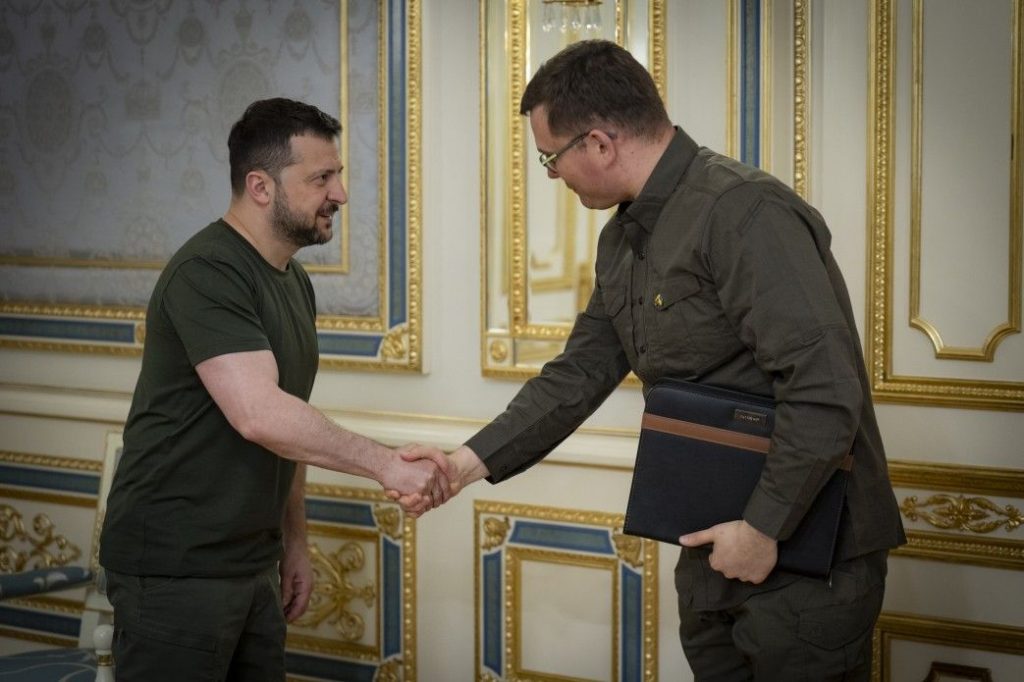Lithuania has announced that it will take steps to encourage Ukrainian men of military age living in the country to return home, following in the footsteps of Poland. This decision comes in response to Ukraine’s new provision banning the sending of identification documents and passports to Ukrainian men aged 18 to 60 living abroad. The goal of these measures is to ensure that men of conscription age show support for their country in the midst of war. The Polish Defense Minister, Wladyslaw Kosiniak-Kamysz, stated that Poland is also prepared to help Ukraine bring its military-aged men back in light of the new changes to passport and consular service laws for Ukrainian men living abroad.
Ukraine’s government implemented these new measures as part of a mobilization law aimed at increasing manpower during the ongoing conflict. The law includes a ban on men aged 18 to 60 leaving Ukraine during the war while martial law is in effect, with some exceptions. The Ukrainian Foreign Minister, Dmytro Kuleba, emphasized the importance of fair attitudes towards men of conscription age in Ukraine and abroad, stating that those who leave the country must show support for its survival. The BBC estimated that around 650,000 military-age Ukrainian men had left the country for the EU since the beginning of the full-scale invasion, highlighting the critical shortage of manpower faced by Ukraine.
The Defense Minister of Lithuania, Laurynas Kasciunas, expressed support for the measures taken by Poland and mentioned the possibility of limiting social benefits, work permits, and other documents for Ukrainian men of military age living abroad. While Kasciunas clarified that no one would be forced to return to Ukraine, the aim is to create incentives for these men to show support for their country during wartime. The mobilization bill passed by Ukraine has been a subject of debate and revision, with the government making efforts to address the manpower shortage through new regulations and policies.
The support and assistance from countries like Poland and Lithuania in encouraging Ukrainian men of conscription age to return home reflect the solidarity and commitment of the international community to Ukraine’s defense and security. As the conflict continues, efforts to mobilize and support the Ukrainian military are crucial in addressing the challenges posed by the ongoing war. The measures taken by Ukraine, Poland, and Lithuania underscore the importance of national unity and patriotism in times of crisis, as men of military age are called upon to demonstrate their allegiance to their country during this critical period of conflict.
The mobilization law and related provisions aim to strengthen Ukraine’s defenses and ensure that men of military age play their part in supporting the country’s security and survival. By restricting the movement of military-aged men and implementing measures to encourage their return, Ukraine seeks to bolster its military capabilities and address the manpower challenges posed by the conflict. The international community’s support in this endeavor demonstrates a shared commitment to Ukraine’s sovereignty and territorial integrity, as well as a recognition of the sacrifices being made by those fighting on the front lines. The coordination between Ukraine, Poland, and Lithuania in addressing the issue of military-aged men living abroad highlights the importance of solidarity and cooperation in confronting the challenges posed by the ongoing conflict in Ukraine.
Overall, the measures taken by Ukraine, Poland, and Lithuania reflect a united front in supporting Ukraine’s defense efforts and ensuring the country’s security in the face of ongoing aggression. By encouraging Ukrainian men of conscription age to return home and demonstrate their support for the country, these countries are sending a strong message of solidarity and commitment to Ukraine’s sovereignty. As the conflict continues, it is essential for the international community to stand together in support of Ukraine and to provide the necessary resources and assistance to address the challenges posed by the war. In this fight for independence and sovereignty, every effort counts, and the solidarity shown by countries like Poland and Lithuania is a testament to the shared values and objectives that unite them in this critical moment.















